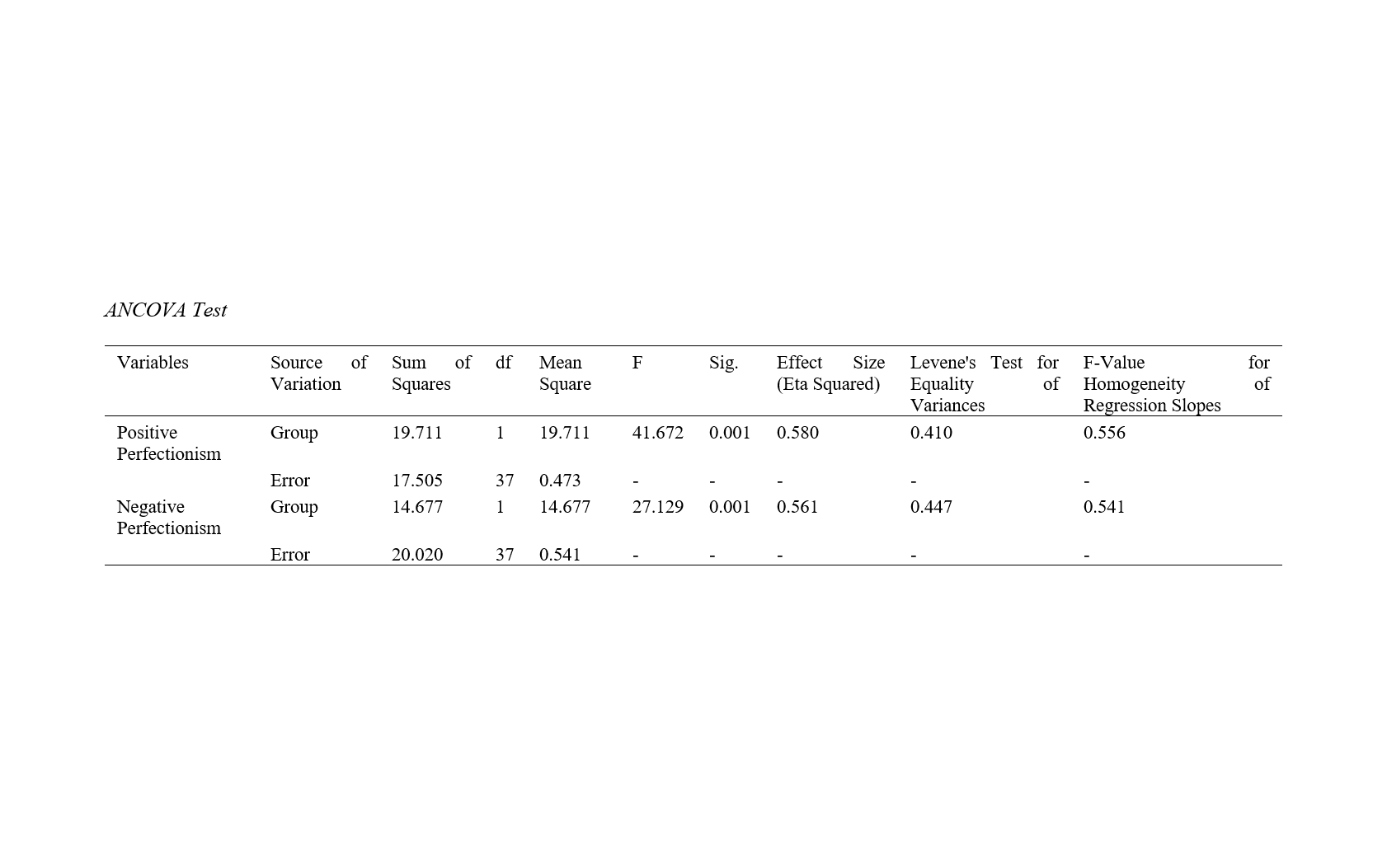Determining the Effectiveness of an Educational Program Derived from a Validated Model of Academic Engagement on Academic Perfectionism among High School Students in Hamadan
Keywords:
Perfectionism, Academic Engagement, StudentsAbstract
Objective: Students with perfectionist concerns impose significant pressure on themselves, which can lead to negative feelings towards school and decreased participation in academic-related tasks. The aim of this research was to determine the effectiveness of an educational program derived from a validated model of academic engagement on the academic perfectionism of students.
Methods and Materials: In this quasi-experimental study, the population included 2500 female high school students in Hamadan, and the research sample consisted of 40 students selected through multi-stage cluster random sampling. These students were divided into two groups of 20 for the experimental and control groups, respectively. Students' perfectionism was measured using the Positive and Negative Perfectionism Scale by Short et al. (1995). Data analysis was conducted using Analysis of Covariance (ANCOVA) through SPSS version 25.
Findings: The results indicated that the educational program derived from the validated model of academic engagement significantly impacted both positive perfectionism (P < .001) and negative perfectionism (P < .001) among the female high school students in Hamadan.
Conclusion: It can be concluded that the educational program derived from the validated model of academic engagement was effective in addressing academic perfectionism among high school students in Hamadan.
Downloads

Downloads
Additional Files
Published
Submitted
Revised
Accepted
Issue
Section
License
Copyright (c) 2024 Soraya Vahid (Author); Ahmad Ali Jadidian (Corresponding Author); Davood Jafari (Author)

This work is licensed under a Creative Commons Attribution-NonCommercial 4.0 International License.








